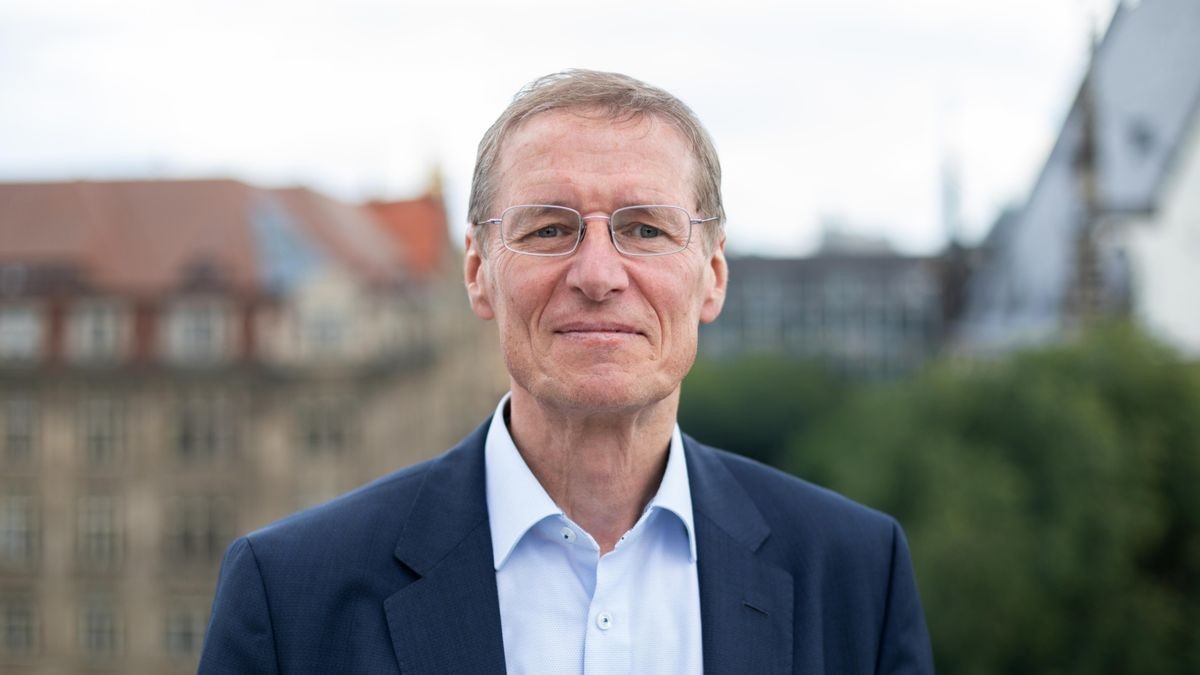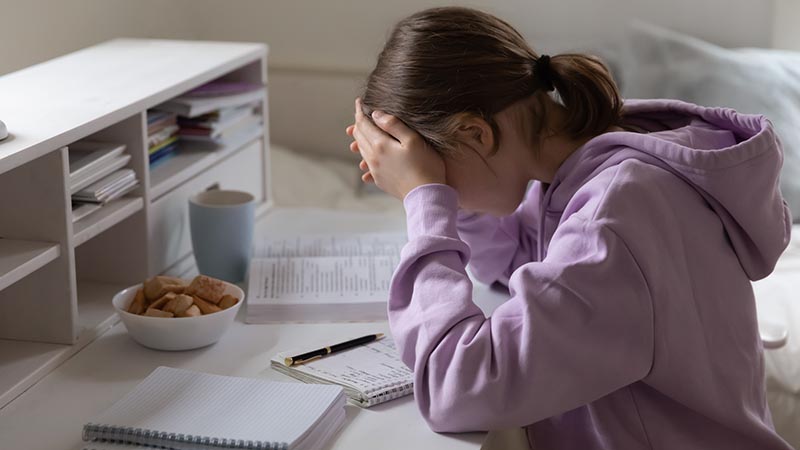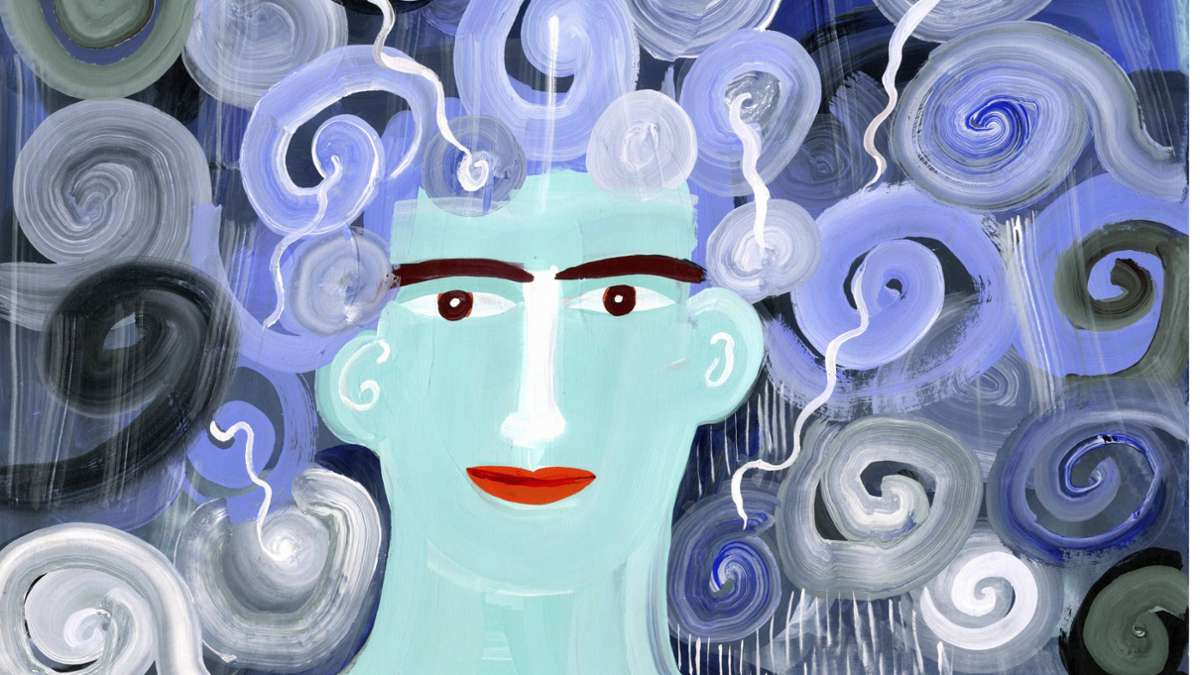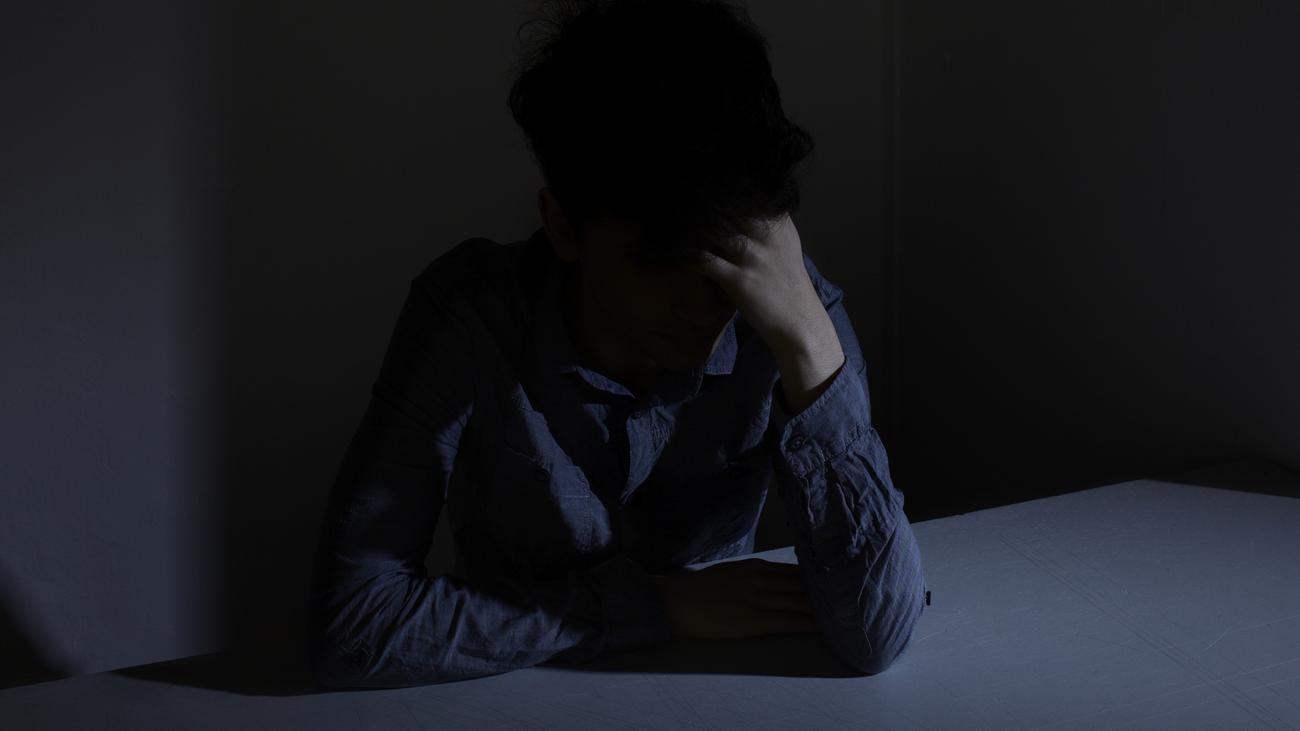Berlin. Depression and burnout sometimes have similar symptoms. But distinguishing between the two diagnoses is crucial for treatment.
Restlessness, exhaustion, listlessness, sleep disorders – these symptoms can occur with both depression and burnout. It is therefore often difficult to differentiate between the two diagnoses. With the right knowledge, you can keep it too overview about the connections and differences between depression and burnout.
In contrast to burnout, depression is an illness officially recognized by the World Health Organization (WHO) and around 1,000 people suffer from it in Germany alone five million People suffer. Doctors speak of mild depression when at least two main symptoms, such as constant exhaustion and listlessness, and two additional symptoms, such as feelings of guilt and sleep disorders, persist for more than two weeks.
Studies: Depressed people live shorter lives on average
However, you shouldn’t be fooled by the term “mild depression,” says Ulrich HegerlChairman of the German Depression Aid Foundation. “It is a serious illness that is associated with a great deal of suffering and a shortened life expectancy,” he says. In fact, studies show that depressed people die on average seven to eleven years earlier than healthy people.

Ulrich Hegerl is a psychiatrist and chairman of the board of the German Depression Aid Foundation. He also heads the German Alliance Against Depression and the European Alliance Against Depression.
© Katrin Lorenz | Katrin Lorenz
The term “burnout” originally appeared in the USA in the 1970s in connection with nursing professions, but is now used internationally. According to the WHO definition, the cause of the phenomenon lies in stress at work that cannot be successfully managed. But also stress Everyday demands such as raising children, caring for relatives or housework can lead to burnout.
However, there is still no independent diagnosis for the disease. Rather, burnout can be seen as Additional diagnosis about an illness, for example depression. Typical symptoms include difficulty sleeping and concentrating, poor performance, feelings of meaninglessness, lack of motivation, and anxiety and panic attacks. Physical signs such as high blood pressure and cardiovascular problems can also occur. Those affected often have the feeling that they no longer have control over their everyday lives. They feel irritable and ineffective, like they just can’t get anything done.
Psychiatrist: “Burnout is less stigmatized”
According to the Federal Statistical Office, there were 185,000 people affected by burnout among all legally insured people in Germany in 2019. However, Ulrich Hegerl criticizes the fact that the term “burnout” is often used without first ruling out that the diagnostic criteria for a real illness are present. Because if depression is hidden behind the term “burnout”, it could even be that dangerous become.
The psychiatrist cites the issue of sleep as an example: “If someone feels completely exhausted and believes that overwork is the cause, they might come to the conclusion that more sleep cures the symptoms,” he says. “But if there is depression behind it and not burnout, then sleeping in often makes things worse.” To the surprise of those affected, sleep deprivation has a significant impact on more than half of those affected antidepressant effect.

According to studies, around one in five to six adults in Germany suffers from depression at some point.
© iStock | Frazao Studio Latino
Hegerl sees an advantage of the term “burnout” in the fact that people who actually suffer from depression are more likely to dare to seek help. “You overextended yourself, were too ambitious professionally – that somehow sounds better than the term ‘depression’ and is in ours Meritocracy also less stigmatized,” he says. However, if depression is present, it is very important to call it that, says the psychiatrist.
Hegerl reports cases in which false causal attributions made the situation of depressed people even worse. “If people with depression believe pressure at work is the cause, they often consider retiring early or switching to a less stressful but perhaps lower-paying job,” he says. “If the depression comes again because the work wasn’t to blame, then your life situation is more likely to improve worsened“, continues Hegerl.
Depression: This role is played by predisposition
According to Hegerl, this plays a crucial but often underestimated role in depression Disposition. If this is the case, those affected usually repeatedly slip into depressive phases of illness. People without the appropriate predisposition, on the other hand, could suffer the most severe stress without ever suffering from real depression.
In addition, for people with a predisposition, it is possible that external factors such as excessive demands on the job Trigger for a depressive episode. However, the depressive phase of the illness often occurs without any apparent cause. “Some of those affected then ask themselves why they have slipped into depression again even though they are actually in a good phase of life,” says the psychiatrist.
You might also be interested in: Parental burnout – “It’s a gradual process”
If you are unsure whether you are suffering from burnout, i.e. a crisis caused by overwork, or from depression, Hegerl advises: professional help In Germany, contact points are the family doctor, the specialist in psychiatry or neurology and the psychological psychotherapist.
The best recipes: the EAT CLUB newsletter!
The finest recipes and quick-cooked news from the food world await you every week.
By subscribing to the newsletter I agree to the advertising agreement.
Basically, burnout is described more contextually, i.e. with reference to a cause, while depression is often diagnosed independently of the context. There are also symptoms that are specific to one or another clinical picture. So indicates constant Irritability more likely to indicate burnout, while suicidal thoughts are more typical of depression.
Also exciting: Expert – This is what happens in the brain when you exercise
If there is burnout in the sense of chronic excessive demands, according to Hegerl, it is often enough to reduce stress at work or at home. Depression, on the other hand, is a serious, often life-threatening illness that must be treated as quickly and consistently as possible. The two main pillars of the Treatment include antidepressants and cognitive behavioral therapy.





